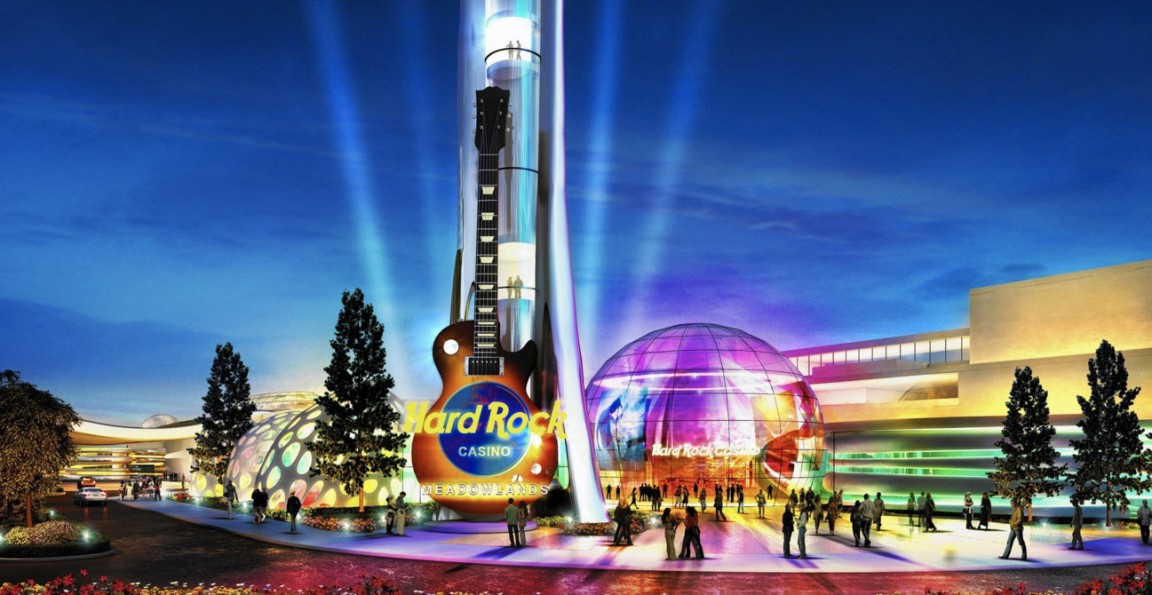In 2015, New Jersey’s casinos paid $237.09 million in gaming tax revenue, substantially less than what casinos in other states pay.
The state’s gross casino gaming revenue was $2.563 billion in 2015. New Jersey’s eight land-based casinos are assessed an 8 percent tax on gross gaming revenue, in addition to a community investment alternative obligation of 1.25 percent of gross gaming revenue (or an investment alternative 2.5 percent on gross gaming revenue), according to the American Gaming Association’s (AGA) 2016 edition of State of the States (pdf).
Between 2014 and 2015, commercial casino tax revenue in the Garden State fell by 6.53 percent, from $253.65 million in 2014 to $237.09 million the following year. The significant decline was in direct contrast to regional competitors, New York, Pennsylvania, and Maryland, where commercial casino tax revenue increased by 2.80 percent, 2.34 percent, and 8.90 percent respectively.
It was the ninth consecutive year the state’s gaming market shrank. Over the past ten years, the state’s casinos have faced an increase in regional competition, including Pennsylvania, which have either continued to expand their respective gaming markets or have approved casinos for the first time. The biggest annual drop in the commercial casino industry’s casino gaming revenue in the US was in New Jersey at -6.5 percent. Further declines in 2015 were emphasized by the closing of four casino properties in Atlantic City in 2014, as the Boardwalk city felt intense pressure from the casino markets in Pennsylvania, New York, and Maryland.
The tax rate on gross gaming revenue in the Garden State is considerably lower than what those three competing states paid in 2015. In 2015, Pennsylvania’s 12 land-based and race track casinos’ gross casino gaming revenue was $3.174 billion and the gaming tax revenue was $1.379 billion, according to the report. The report notes that in 2015, no state, including Nevada, received more direct gaming tax revenue from its casino market than Pennsylvania. Casinos in the Keystone State are assessed one of the highest gaming tax rates in the US; their slot machine revenue is taxed at a rate of 55 percent, according to the report.
Poised to see significant expansion in the coming years, having authorized four new resort casinos in three regions of Upstate New York, the Empire State’s nine operating casinos gross casino gaming revenue was $1.951 billion in 2015 and its gaming tax revenue was $888.37 million. More than 70 percent of the statewide gaming revenues in 2015 in New York were accounted for by Resorts World Casino in Queens and Empire City Casino in Yonkers.
Maryland’s five land-based and race track casinos gross casino gaming revenue was $1.098 billion in 2015 and its gaming tax revenue was $452.92 million, more than two times what the Garden State received in casino tax revenue.
Commenting on the state’s tax rate, Meadowlands’ owner, Jeff Gural, said that New Jersey has been ripping off the casino industry for 30 years. He said, “I wrote the casino laws in New York. The tax rate here is a fiasco. Basically what has happened in Atlantic City is that operators have taken profits from here and built competition for Atlantic City,” according to the Press of Atlantic City.
The highest gaming tax rates in the country; slot machine revenue is taxed at 55 percent in Pennsylvania, while a 16 percent tax rate is assigned to table games. New York is considerably lower; however, the casino tax rate there still falls between 31 and 41 percent, according to the AGA report. Meanwhile, the tax on table game revenue in Maryland is 20 percent and between 50 percent and 61 percent on video lottery terminals (VLTs). The report notes that at racetrack casino facilities, such as in Maryland, where VLTs are operated by the state lottery, effective tax rates are higher than those with a more traditional regulatory structure where the owners and operators of the machines are gaming licensees.
Concerned with the disparities in the casino tax rate, Assemblyman Chris Brown, R-Atlantic, proposed a plan in 2015 that would see the casino tax rate in New Jersey fall more in line with those in surrounding states by including revenue streams such as entertainment, beverage, and food. Only gross gaming revenue is currently taxable. Brown’s plan would reportedly generate an additional $70 million in tax revenue.
Concerns over the casino tax rate in New Jersey aren’t new. A 10 percent tax on casino revenue was proposed in 2003 by then Gov. Jim McGreevey, which reportedly would have raised upwards of $90 million to help alleviate a $5 billion budget gap at the time.



